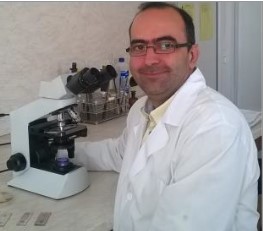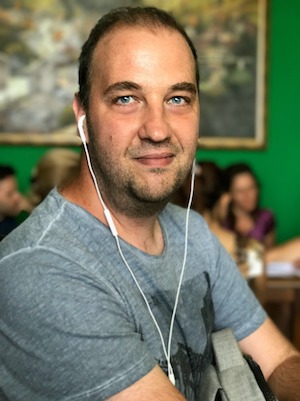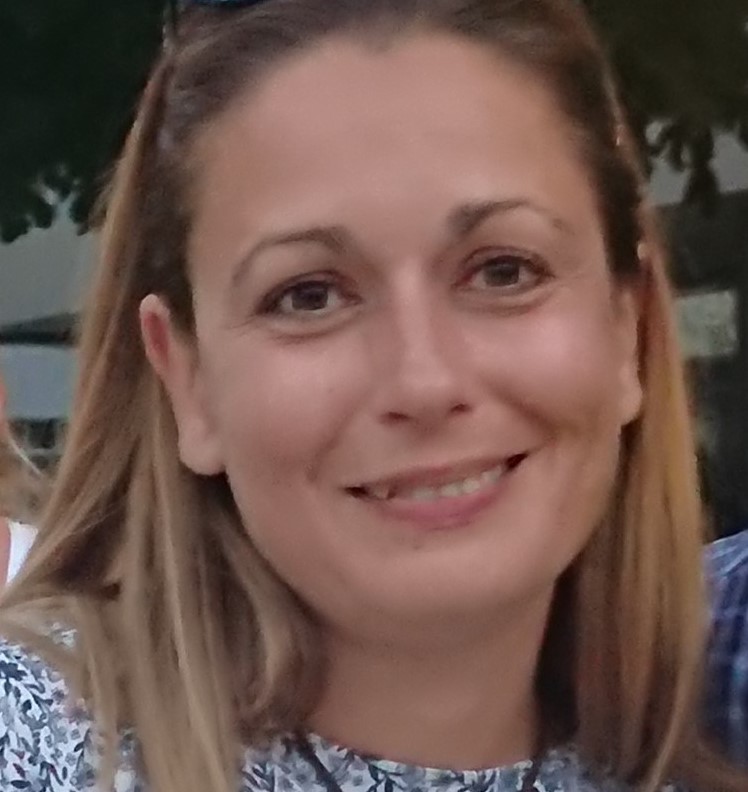PROJECTS
| Project title | Biologically active metabolites of some cyanobacterial species and their mechanisms of action |
| Project Leader | Assoc. Prof. Ivanka Ivanova Teneva, PhD |
| Summary | Cyanobacteria are sources of a number biologically active metabolites with a wide range of action. Although many studies have been conducted over the last 30 years to study the biologically active substances produced by cyanobacteria, only 10-20% of the established cyanometabolites are characterized in terms of their chemical structure and biological potential. The main objective of this project is to establish the mechanisms of action at the cellular level of biologically active cyanometabolites isolated from poorly studied, but widespread representatives of the cyanobacterial genera. The combination of biological methods and advanced physicochemical methods of analysis will allow to identify and establish the structure of the bioactive cyanometabolites, to identify the spectrum of their biological activity and the mechanisms of action. |
| Assoc. Prof. Ivanka Ivanova Teneva, PhD |  |
| Project title | National Scientific Program“BioActivMed”- Low toxic bioactive substances for precise medicine” |
|
Project Leader Research team leader of FB |
Prof. Olia Stoilova, PhD Prof. Velizar Gochev, PhD |
| Summary | The main goal of the Program is to develop new low-toxic biologically active agents and systems containing extracts from natural sources (of plant or animal origin) from Bulgaria for the prevention and support of the treatment of certain diseases. The specific objectives are aimed at: Creating new methodologies for research of new low-toxic biologically active agents and systems containing extracts from natural sources and determining their quality and applicability as new products for the purposes of personalized and preventive medicine; Development of alternative approaches to combat infectious, neurodegenerative and malignant diseases to improve the quality of life of the population. |
| Prof. Velizar Gochev, PhD |  |
| Project title | Investigation of the involvement of microRNA molecules and their isoforms in the establishment and maintenance of endometrial susceptibility |
| Project Leader | Prof. Galina Yahubyan, PhD |
| Summary | With the rapid development of next-generation sequencing technologies, it has become clear that genes encoding microRNAs can produce both canonical microRNAs and their variants (isoforms) that differ in structure and functional significance. The project aims to characterize the expression dynamics of microRNAs and their isoforms, as well as mRNA, in the natural endometrial cycle by applying two types of new generation sequencing – small RNA (seq) and transcript (RNA-seq). The integration of data from both types of sequencing will allow the association of microRNAs and their isoforms with both potential genetic targets and genes encoding transcription factors, and will enable the construction of regulatory networks to operate in the receptive endometrium at the molecular level. |
| Prof. Galina Yahubyan, PhD |  |
| Project title | Metagenomic-based detection of microbiome communities on specific Bulgarian acid tests and improvement of their qualitative characteristics |
|
Project Leader (main institution) Research team leader of UP (partner institution) |
Prof. Angel Angelov, PhD, UFT, Plovdiv Assoc. Prof. Dr. Vesselin Baev, PhD |
| Summary | In recent years, there has been a growing interest of consumers in foods obtained through the so-called. traditional or region-specific methods. To this group of products, which are becoming increasingly popular on the market in Europe, are bread and bakery products made with sourdough. The aim of the project is to make metagenomic profiling of microbial communities in specific Bulgarian acid tests and to identify biomarkers for product quality, through which to control microbial interactions. |
| Assoc. Prof. Dr. Vesselin Baev, PhD |  |
| Project title | Biological diversity and taxonomical structure of Iridaceae Juss. in Bulgarian flora |
|
Project Leader (main institution) Research team leader of UP (partner institution) |
Assoc. Prof. Dr. Tsvetanka Raycheva, PhD, University of Agriculture, Plovdiv Assoc. Prof. Elena Apostolowa-Kuzova, PhD |
| Summary | The territory of Bulgaria is characterized as a secondary formation center for some of the species in the investigated family Iridaceae (Iris, Crocus). Evidence of these is the existence of local and regional endemism. As a result of our investigation, we await to take advantage of the clarification of the micro evolutional processes, going in the big polymorphic groups, establishment of the taxonomical variability, and the value of the Bulgarian territory as a part of a secondary formation center with recent active evolution. The collected information and the current chorological maps of the Iridaceae species will be a solid base to update the data in the botanical summaries and start point for monitoring programs and plans for the protected areas and species according to the National Strategy of Biodiversity Protection. |
| Assoc. Prof. Elena Apostolowa-Kuzova, PhD |  |
| Project title | Towards widespread clinical application of blood-based diagnostic tools; EU’s Horizon 2020 Programme, Grant Agreement № 765492 |
|
Project Leader (main institution) Research team leader of UP (partner institution) |
Prof. Tom Würdinger, PhD, STICHTING VUMC, Netherland Assoc. Prof. Vesselin Baev, PhD |
| Summary | Liquid biopsies offer a minimally invasive, safe, and sensitive alternative or complementary approach to tissue biopsies that can change the game in cancer management. The European Liquid Biopsy Academy (ELBA) project is an Innovative Training Network (ITN) funded by the European Commission’s Marie Skłodowska-Curie program, which aims to move the promising liquid biopsy technology from its infancy and introduce it to the clinic. further focus on early diagnosis of Non-Small Cell Lung Cancer (NSCLC). |
| Assoc. Prof. Dr. Vesselin Baev, PhD |  |
| Project title | Joint Monitoring for Environmental Protection in BSB countries – BSB 884 |
|
Project Leader Research team leader of FB |
Prof. Nevena Mileva, PhD Assoc. Prof. Gana Gecheva, PhD |
| Summary | The project is aimed at solving common problems of nature parks and protected areas in the Black Sea Basin (BSB). The overall project objective is to contribute to increasing the level of availability of cross-border compatible environmental monitoring data and information in nature parks and protected areas in BSB. The major project outcome will be the creation of an intelligent platform for the collection, processing and analysis of environmental data via Web-based cloud service for automatic data collection from wireless sensor networks and Web-based cloud service for video content. An Online Monitoring System (OMS) for environmental data in BSB will integrate the measurement data and will serve as a platform for the dissemination of the collected information and data. The developed smart technologies and intelligent wireless sensor networks will also be used for conducting a monitoring of the condition of natural habitats and the availability of invasive species, and for distance observation of territories which are most dependent on climate change and anthropogenic influences. |
| Assoc. Prof. Gana Gecheva, PhD |  |
| Project title | Complex assessment of genetic and environmental factors related to the losses of honey bees (Apis mellifera L.) in Bulgaria |
| Project Leader | Prof. Evgeniya N. Ivanova, PhD, D.Sc. |
| Summary |
Honey bees are species of insects of enormous biological, ecological, agricultural and economic significance, as well as a significant object of research. Surveys over recent decades have shown that demand for high economic performance and desirable ethological characteristics of bee colonies has led to a change in the natural diversity and adaptability of populations through mass import and trade in queen bees and swarms. World studies have shown that the effects of commercialization in the area of beekeeping are negative, with the emergence of new pests and new bee diseases, a reduced overall vitality and the resilience of colonies to aggressive environmental factors. On the other hand, it has been proved that hybridization poses serious hazards to the gene pool and the genotypic structure of local populations and to the genetic diversity of A. mellifera in Europe. These circumstances make it necessary to implement science-based breeding strategies and measures to protect the health and viability of indigenous populations that are well adapted to the specific environmental conditions. The great need to develop measures to protect the national genetic resource of A. mellifera in Bulgaria as well as to conduct specific research, laboratory and field tests of factors at risk for the health and viability of honey bees, among which are the agrochemicals that are diverse in terms of chemical nature and mechanism of action. In recent years, agricultural practice has taken into account the trend of widespread use of a new generation of pesticides, which are applied in modern agricultural production to protect crop plants from various pests. In beekeeping practice, a variety of preparations are widely used to combat varroatosis. Although they are to a varying extent effective against Varoa, they also contain a potential toxicological hazard for the honeybees themselves, which has not been studied. Synergistic interactions between different agrochemicals used have not been studied. World studies are increasingly examining as reasons for honey bee colony losses not only different bee diseases, but also factors such as genetic origin, queen qualities, adaptation of local populations to the specific environmental conditions, global climate changes, natural disasters of various natures, and mortality caused by agrochemicals used to treat crops that prove to be a food source for honey bees. In recent years, Bulgaria has seen increasingly alarming trends towards increasing the mortality of honey bees and the reasons for this could be sought in various directions. These circumstances motivate the need for joint basic research in this area which could help to find answers to important problems for the beekeeping and agricultural community, as well as to become a basis for a systematic and targeted program for the protection of honey bees in Bulgaria. The aim of the present study is to make a complex assessment of the losses of honey bees in Bulgaria and based on complex interdisciplinary approaches to investigate and characterize the overall toxic, cytological and genotoxic effect of agrochemicals applied in agriculture and beekeeping and synergistic interactions between them in order to trace and analyse risk factors for the health and vitality of honey bees and on the basis of the complex results obtained, to develop, propose and promote real activities for preservation of the Bulgarian honey bee biodiversity through targeted care for improvement of the health status and vitality of its populations within the territory of Bulgaria. The planned study is in line with the main goal of the National Strategy for the Development of Scientific Research 2017-2030 because: will allow a team of recognized specialists in biology, apidology and honey bees selection to realize their potential in solving tasks and issues that are relevant to society; will allow the attraction of young researchers (including students) to a scientific team, giving them the opportunity to participate in a real scientific experiment; will put scientists, beekeepers and farmers in a joint team for a concerted effort to protect honeybees in Bulgaria through activities based on scientific principles; will provide opportunities for active contacts and cooperation in implementing new technologies with researchers across Europe working on resolving the significant issue |
| Prof. Evgeniya N. Ivanova, PhD, D.Sc. |  |
| Project title | Role of bacterial L-asparaginase for posttranslational modifications of type II collagen (CII) and development of rheumatoid arthritis (KP-06-Austria-3) |
| Project leader | Prof. Balik Dzhambazov, PhD |
| Summary | The objectives of this project are thus: (1) to characterize and determine the posttranslational modifications of the CII immunodominant epitopes caused by bacterial L-asparaginase, (2) to investigate these modifications in animal models for rheumatoid arthritis during the disease progress and their role for the initiation, development and pathogenesis of the disease, (3) to examine the T- and B-cell responses as well as their cross-reactivity against different posttranslationally modified immunodominant epitopes by bacterial L-asparaginase, (4) to investigate the possible influence on the cytokine profiles. The studies will define the role of posttranslational modifications by bacterial L-asparaginase in the pathogenesis of arthritis and new possibilities for diagnosis and treatment. |
| Project title | Diagnostic and prognostic significance of new biomarkers in osteoarthritis and the potential for disease-modifying therapeutic interventions (KP-06-PN-33/9) |
| Project leader | Prof. Balik Dzhambazov, PhD |
| Summary | In the current project, we aim to analyze a combination of markers of cartilage damage – serum levels of cartilage oligomeric protein/COMP), matrix metalloproteinase/MMP 13, Coll 2-1 (type II collagen cleavage product) in patients with OA of the knee joint. There are data that drugs, which inhibit the bone resorption such as bisphosphonates may have protective effects on the OA progression, but the data are scarce and at present these drugs are not used in the combination pharmacological approach in OA patients. We will evaluate the role of bisphosphonates in experimental model of OA. The serum levels of COMP, MMP 13 and Coll 2-1 will be analyzed as well as the histological changes in joint structures after treatment with bisphosphonate. |
| Project title | Synthesis and study of the biological activity of new targeted drug delivery systems based on Au, FeOx and Au-FeOx nanoparticles |
| Project leader | Assoc. prof. Tsvetelina Batsalova, PhD |
| Summary | The project aims to solve a priority task in pharmacology – the creation of new anticancer agents based on materials containing Au, FeOx and Au-FeOx nanoparticles that can be used as targeted drug delivery systems. To achieve this, a complex synthetic technique is applied, which includes the use of metal vapor synthesis (MVS) to obtain Au, FeOx and Au-FeOx nanoparticles, their conjugation with the cytostatic drug methotrexate, and subsequent modification of the resulting system with polyethyleneglycol or polyvinylpyrrolidone, as well as analyses of biological activity and potential biomedical application during each stage of the synthetic process. |
4th Balkan Scientific Conference on Biology – November 1st to November 3th, 2017, Plovdiv, BULGARIA ( PDF)

